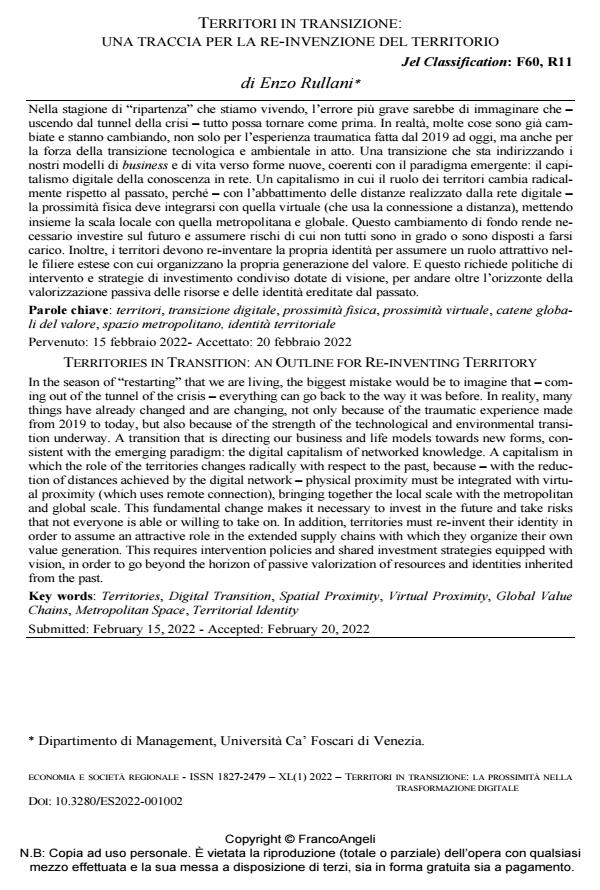Territori in transizione: una traccia per la re-invenzione del territorio
Journal title ECONOMIA E SOCIETÀ REGIONALE
Author/s Enzo Rullani
Publishing Year 2022 Issue 2022/1
Language Italian Pages 26 P. 16-40 File size 361 KB
DOI 10.3280/ES2022-001002
DOI is like a bar code for intellectual property: to have more infomation
click here
Below, you can see the article first page
If you want to buy this article in PDF format, you can do it, following the instructions to buy download credits

FrancoAngeli is member of Publishers International Linking Association, Inc (PILA), a not-for-profit association which run the CrossRef service enabling links to and from online scholarly content.
In the season of "restarting" that we are living, the biggest mistake would be to imagine that - coming out of the tunnel of the crisis - everything can go back to the way it was before. In reality, many things have already changed and are changing, not only because of the traumatic experience made from 2019 to today, but also because of the strength of the technological and environmental transition underway. A transition that is directing our business and life models towards new forms, consistent with the emerging paradigm: the digital capitalism of networked knowledge. A capitalism in which the role of the territories changes radically with respect to the past, because - with the reduction of distances achieved by the digital network - physical proximity must be integrated with virtual proximity (which uses remote connection), bringing together the local scale with the metropolitan and global scale. This fundamental change makes it necessary to invest in the future and take risks that not everyone is able or willing to take on. In addition, territories must re-invent their identity in order to assume an attractive role in the extended supply chains with which they organize their own value generation. This requires intervention policies and shared investment strategies equipped with vision, in order to go beyond the horizon of passive valorization of resources and identities inherited from the past.
Keywords: Territories, Digital Transition, Spatial Proximity, Virtual Proximity, Global Value Chains, Metropolitan Space, Territorial Identity
Jel codes: F60, R11
Enzo Rullani, Territori in transizione: una traccia per la re-invenzione del territorio in "ECONOMIA E SOCIETÀ REGIONALE " 1/2022, pp 16-40, DOI: 10.3280/ES2022-001002